-
 Bitcoin
Bitcoin $84,695.3415
0.76% -
 Ethereum
Ethereum $1,596.0705
0.70% -
 Tether USDt
Tether USDt $0.9999
-0.01% -
 XRP
XRP $2.1057
0.90% -
 BNB
BNB $586.5478
0.78% -
 Solana
Solana $133.2446
5.53% -
 USDC
USDC $0.9998
-0.03% -
 TRON
TRON $0.2481
-2.31% -
 Dogecoin
Dogecoin $0.1567
2.20% -
 Cardano
Cardano $0.6194
2.08% -
 UNUS SED LEO
UNUS SED LEO $9.4622
0.93% -
 Chainlink
Chainlink $12.4715
2.47% -
 Avalanche
Avalanche $19.2711
1.95% -
 Toncoin
Toncoin $2.9562
2.94% -
 Stellar
Stellar $0.2376
1.05% -
 Shiba Inu
Shiba Inu $0.0...01189
1.68% -
 Sui
Sui $2.1076
0.84% -
 Hedera
Hedera $0.1598
1.03% -
 Bitcoin Cash
Bitcoin Cash $333.5953
4.22% -
 Polkadot
Polkadot $3.6426
3.30% -
 Litecoin
Litecoin $75.2659
0.31% -
 Hyperliquid
Hyperliquid $16.6475
8.83% -
 Dai
Dai $1.0000
-0.01% -
 Bitget Token
Bitget Token $4.3782
0.86% -
 Ethena USDe
Ethena USDe $0.9991
-0.02% -
 Pi
Pi $0.6039
-1.77% -
 Monero
Monero $217.1068
-1.30% -
 Uniswap
Uniswap $5.2201
0.80% -
 OKB
OKB $51.3905
-1.79% -
 Pepe
Pepe $0.0...07294
2.43%
What is the maximum leverage for DigiFinex delivery contracts?
DigiFinex delivery contracts offer varying leverage levels, typically ranging from 10x to 125x, depending on underlying asset and market conditions.
Nov 25, 2024 at 10:03 pm

What is the Maximum Leverage for DigiFinex Delivery Contracts?
DigiFinex, a leading cryptocurrency exchange, offers a range of trading products, including delivery contracts with varying leverage levels. Understanding the maximum leverage available for these contracts is crucial for traders to effectively manage their risk and optimize their trading strategies.
Leverage in Delivery Contracts
Leverage refers to the amount of borrowed capital a trader can use to increase their trading positions. It amplifies potential profits but also magnifies potential losses. In delivery contracts, traders can control a larger position size than their account balance by utilizing leverage.
Maximum Leverage on DigiFinex Delivery Contracts
The maximum leverage available for DigiFinex delivery contracts varies depending on the underlying asset and market conditions. However, the maximum leverage typically ranges between 10x to 125x. The exact leverage levels are subject to change and should be checked on the DigiFinex trading platform before executing trades.
Factors Affecting Leverage
Several factors can influence the maximum leverage offered by DigiFinex, including:
- Underlying asset: Contracts with higher volatility tend to have lower maximum leverage levels to mitigate potential risks.
- Market volatility: During periods of high market volatility, DigiFinex may temporarily reduce maximum leverage levels to manage risk.
- Account size and trading history: More experienced traders with larger account balances may be eligible for higher leverage limits.
Leverage Considerations
Before utilizing leverage in delivery contracts, traders should carefully consider the following:
- Risk management: Leverage can significantly amplify potential losses. Traders should only use leverage within their risk appetite and ensure they have a sound risk management strategy.
- Understanding of market conditions: Traders should have a thorough understanding of the market conditions and trading principles before using leverage.
- Margin call threshold: Traders should be aware of the margin call threshold at which DigiFinex will automatically close their positions to prevent further losses.
- Experience and trading skills: Leverage is best suited for experienced traders with a solid understanding of trading and risk management techniques.
Steps to Check Maximum Leverage on DigiFinex:
- Create a DigiFinex account: Register on the DigiFinex platform to access the trading interface.
- Open the trading terminal: Click on the "Trade" tab in the top menu and select the desired trading pair.
- View contract specifications: Click on the contract specifications tab to view detailed information about the contract, including the maximum leverage offered.
Additional Resources
- DigiFinex Support Center: https://support.digifinex.com/hc/en-us
- DigiFinex Terms and Conditions: https://www.digifinex.com/terms
Disclaimer:info@kdj.com
The information provided is not trading advice. kdj.com does not assume any responsibility for any investments made based on the information provided in this article. Cryptocurrencies are highly volatile and it is highly recommended that you invest with caution after thorough research!
If you believe that the content used on this website infringes your copyright, please contact us immediately (info@kdj.com) and we will delete it promptly.
- US Market Activity Could Spark Bitcoin Rally, Analyst Says
- 2025-04-17 20:15:12
- Cardano (ADA) Price Action – April 15 to April 16, 2025
- 2025-04-17 20:15:12
- Bitcoin (BTC) Has Become a Risk Asset, Tracking the Aussie Dollar-Yen (AUD/JPY) Pair
- 2025-04-17 20:10:12
- BitBonds or the art of integrating bitcoin into Treasury bond financing
- 2025-04-17 20:10:12
- Auradine, a maker of computing equipment for bitcoin (BTC) mining and AI applications, said it raised $153 million
- 2025-04-17 20:05:12
- Dogecoin (DOGE) Team Opposes Michael Saylor's "Bitcoin is chess" Tweet Comparing BTC to Hungry Hungry Hippos Game
- 2025-04-17 20:05:12
Related knowledge
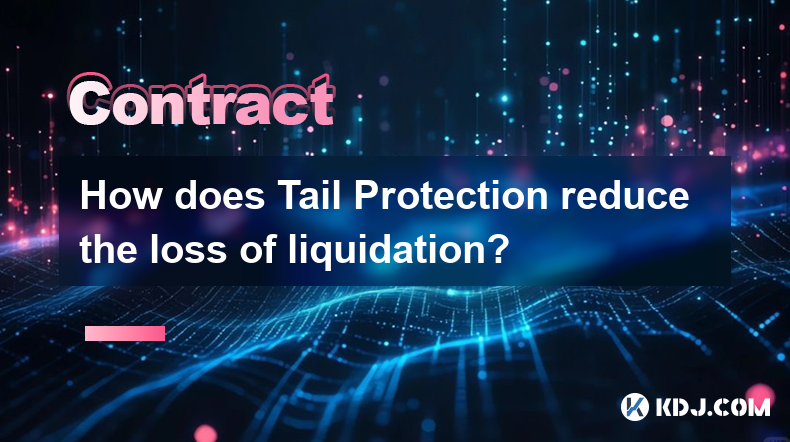
How does Tail Protection reduce the loss of liquidation?
Apr 11,2025 at 01:50am
Introduction to Tail Protection in CryptocurrencyTail Protection is a mechanism designed to mitigate the risks associated with liquidation in cryptocurrency trading. Liquidation occurs when a trader's position is forcibly closed by the exchange due to insufficient margin to cover potential losses. This often happens in leveraged trading, where traders b...
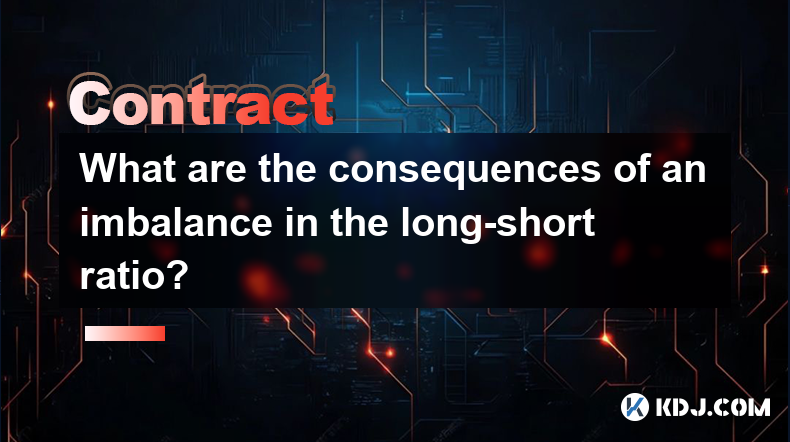
What are the consequences of an imbalance in the long-short ratio?
Apr 13,2025 at 02:50pm
The long-short ratio is a critical metric in the cryptocurrency trading world, reflecting the balance between bullish and bearish sentiments among traders. An imbalance in this ratio can have significant consequences on the market dynamics, affecting everything from price volatility to trading strategies. Understanding these consequences is essential fo...
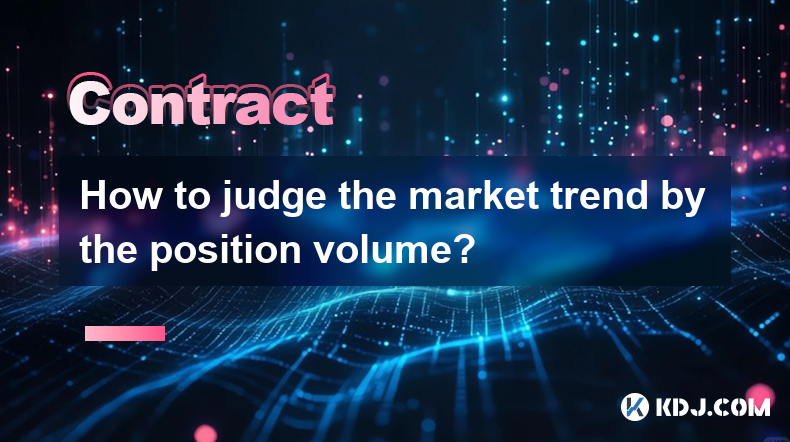
How to judge the market trend by the position volume?
Apr 11,2025 at 02:29pm
Understanding how to judge the market trend by position volume is crucial for any cryptocurrency trader. Position volume, which refers to the total number of open positions in a particular cryptocurrency, can provide valuable insights into market sentiment and potential price movements. By analyzing this data, traders can make more informed decisions ab...

Why does a perpetual contract have no expiration date?
Apr 09,2025 at 08:43pm
Perpetual contracts, also known as perpetual futures or perpetual swaps, are a type of derivative product that has gained significant popularity in the cryptocurrency market. Unlike traditional futures contracts, which have a fixed expiration date, perpetual contracts do not expire. This unique feature raises the question: why does a perpetual contract ...
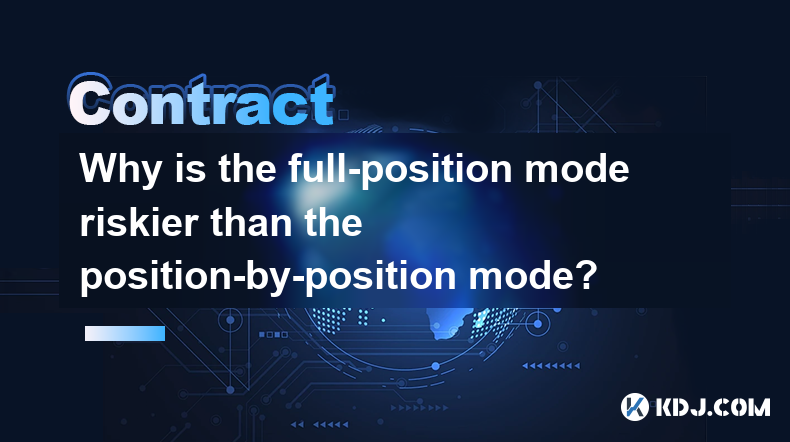
Why is the full-position mode riskier than the position-by-position mode?
Apr 13,2025 at 03:42pm
Why is the Full-Position Mode Riskier Than the Position-by-Position Mode? In the world of cryptocurrency trading, the choice between full-position mode and position-by-position mode can significantly impact the risk profile of a trader's portfolio. Understanding the differences between these two modes is crucial for making informed trading decisions. Th...
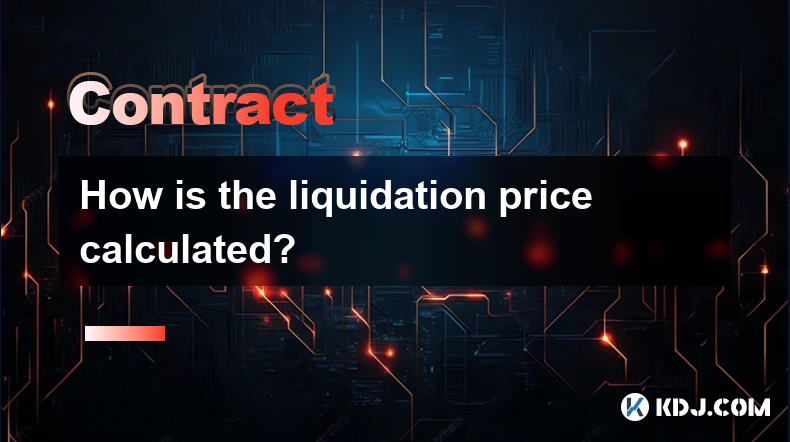
How is the liquidation price calculated?
Apr 12,2025 at 01:35am
Introduction to Liquidation PriceLiquidation price is a critical concept in the world of cryptocurrency trading, particularly when dealing with leveraged positions. Understanding how this price is calculated is essential for traders to manage their risk effectively. The liquidation price is the point at which a trader's position is forcibly closed by th...

How does Tail Protection reduce the loss of liquidation?
Apr 11,2025 at 01:50am
Introduction to Tail Protection in CryptocurrencyTail Protection is a mechanism designed to mitigate the risks associated with liquidation in cryptocurrency trading. Liquidation occurs when a trader's position is forcibly closed by the exchange due to insufficient margin to cover potential losses. This often happens in leveraged trading, where traders b...

What are the consequences of an imbalance in the long-short ratio?
Apr 13,2025 at 02:50pm
The long-short ratio is a critical metric in the cryptocurrency trading world, reflecting the balance between bullish and bearish sentiments among traders. An imbalance in this ratio can have significant consequences on the market dynamics, affecting everything from price volatility to trading strategies. Understanding these consequences is essential fo...

How to judge the market trend by the position volume?
Apr 11,2025 at 02:29pm
Understanding how to judge the market trend by position volume is crucial for any cryptocurrency trader. Position volume, which refers to the total number of open positions in a particular cryptocurrency, can provide valuable insights into market sentiment and potential price movements. By analyzing this data, traders can make more informed decisions ab...

Why does a perpetual contract have no expiration date?
Apr 09,2025 at 08:43pm
Perpetual contracts, also known as perpetual futures or perpetual swaps, are a type of derivative product that has gained significant popularity in the cryptocurrency market. Unlike traditional futures contracts, which have a fixed expiration date, perpetual contracts do not expire. This unique feature raises the question: why does a perpetual contract ...

Why is the full-position mode riskier than the position-by-position mode?
Apr 13,2025 at 03:42pm
Why is the Full-Position Mode Riskier Than the Position-by-Position Mode? In the world of cryptocurrency trading, the choice between full-position mode and position-by-position mode can significantly impact the risk profile of a trader's portfolio. Understanding the differences between these two modes is crucial for making informed trading decisions. Th...

How is the liquidation price calculated?
Apr 12,2025 at 01:35am
Introduction to Liquidation PriceLiquidation price is a critical concept in the world of cryptocurrency trading, particularly when dealing with leveraged positions. Understanding how this price is calculated is essential for traders to manage their risk effectively. The liquidation price is the point at which a trader's position is forcibly closed by th...
See all articles























































































